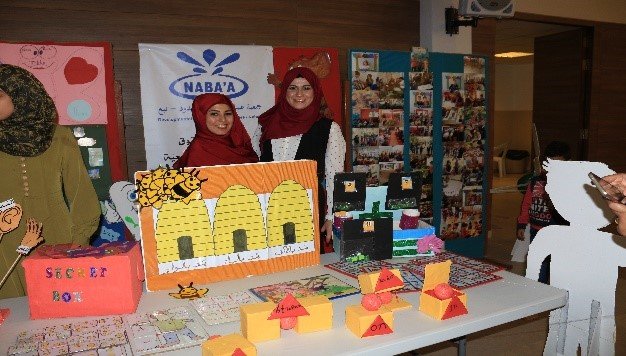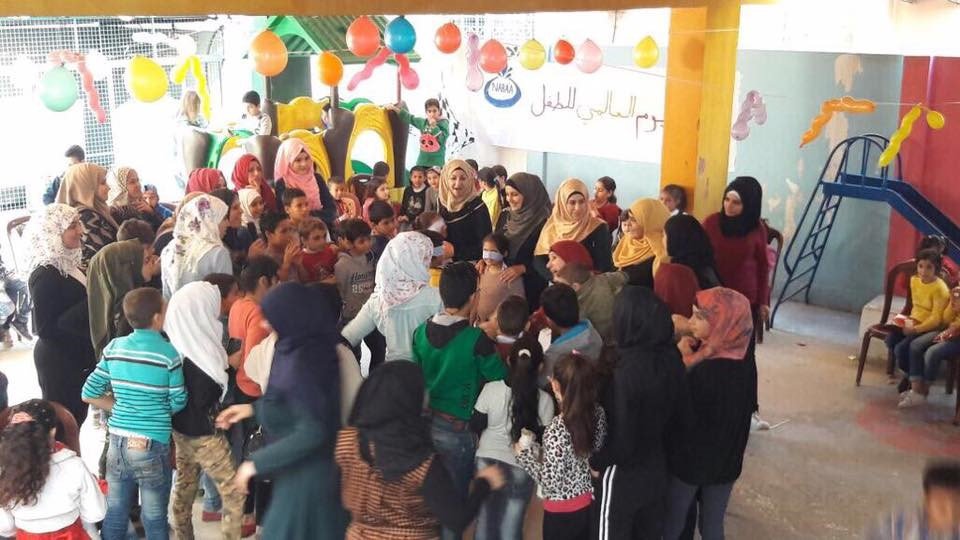By Hiba Hamzi | Program Coordinator
Background during and after the implementation of the project; Persons displaced from Syria have reached a critical situation portrayed by a progressive dwindling of resources, depletion of assets and savings, and restricted access to income generation opportunities. Households in such situations face an inability to secure basic needs such as food, adequate shelter, and basic domestic items for their households including clothes and home supplies, as well as access to healthcare and education. Given their age-specific vulnerabilities, children are especially affected by deteriorating living conditions of their households.
In addition, UNRWA still struggling to ensure adequate, education, health care and other services to PRS (Palestinian refugees from Syria), who now represent an approximate 20 per cent increase of beneficiaries in need of assistance in Lebanon.
One of the most significant challenges to the conflict has been providing children with education. Public and UNRWA schools suffer from a deficiency of training of teachers, lack of equipment and material, as well as old infrastructure. Therefore, Non-formal remedial education is provided as substitute schooling for Syrian and Palestinian Refugees to public and UNRWA education and is neither accredited nor regulated yet by Lebanese authorities (except for the Accelerated Learning Programmes). Therefore, through our education program, we are ensuring that the vulnerable children from the refugee and host communities are able to access education is integral to an effective and equitable response and helps address underlying issues of conflict, we consider that, education can play a key role in reducing the present social tensions while providing education services to all refugees and strengthening the quality of service for host populations.
Naba’a Achievements; During the last period, The core of the education sector for Naba’a is highlighted as the followings;
o Youth and children in the camps develop life skills; despite the critical challenges of youth and children in conflict environments, Nabaa views youth potential to contribute to their own development. and not as potential threat., so that 2500 Youth and adolescents involved in the life skills program covering different topics such as (Communication skills, leader ship skills, how to protect themselves from abuse, reproductive health, peer to peer, human rights, child rights, women rights, etc…). Through this life skills program, Youth and children from vulnerable groups develop their social and educational skills develop their ability to initiate ideas and activities that enhance their community situation, such activities are (advocacy campaigns about their violated rights at the local and national levels, open days, awareness sessions, etc…)
o 550 Children (including children inside and outside schools) were provided equal opportunity in education: Drop out and at risk children enrol in after school program, and children with learning difficulties enrol in accelerated learning program;. The children benefited from educational activities, learning support for children inside school and the accelerated learning program. In addition, the program focused on enhancing children self-esteem, conflict resolution, and communication and life skills. In addition, through the technical assistance, Nabaa assists UNRWA to improve the quality of the learning environment in UNRWA schools, by using quality learning environment (QLE) tool produced by Save the children, and developing durable skills on active learning methodology amongst UNRWA teaching workforce and non-formal education providers while the coordination between local organizations providing educational support in Palestinian refugee camps and informal gatherings is improved. The main topics that the teachers and facilitators;
ü Teaching techniques
ü Learning through actions
ü Indicators addressing the children who are suffering from educational difficulties.
ü How to monitor the improvement of the children
o Caregivers, parents, teachers and local community members developed skills and awareness in order to ensure that children go back to school or at least have access to regular and structured learning opportunities. With their peers and play in safe, protective and stimulating environments under the supervision of trusted adults
CASE STUDY
Y.N. A girl in grade 1 “primary”, the girl was out of school, living with her father and wife, subjected to violence from her father's wife, and most of the time riding in the street between cars, and are subjected to different types of risks and abuse. The girl was stigmatized among her peers as she needs self hygiene and wearing unclean clothes, in addition, she did not know how to read or write, nor did she could know how to hold the pen correctly. The child joined the learning support program at Naba’a center and followed up by the supporting, teachers, after that, the girls returned back to school and now joining the remedial education program at Naba’a, the girls also joined the self hygiene awareness sessions and the psychosocial support program aiming to build her self esteem.
Links:
Project reports on GlobalGiving are posted directly to globalgiving.org by Project Leaders as they are completed, generally every 3-4 months. To protect the integrity of these documents, GlobalGiving does not alter them; therefore you may find some language or formatting issues.
If you donate to this project or have donated to this project, you can receive an email when this project posts a report. You can also subscribe for reports without donating.
Support this important cause by creating a personalized fundraising page.
Start a Fundraiser
